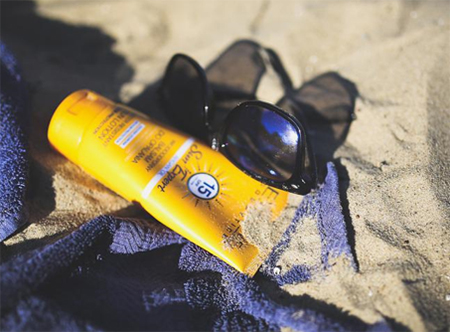Summer is the best time to be outdoors and soak up the glorious sunshine and warmth in the air! I’m eager to listen to the hobbies and activities everyone has planned this summer so I can encourage proper eyewear routines. Life seems to be getting back to somewhat normal since the Covid-19 outbreak, but even though the world slowed down for a bit, the sun never did. Here are some of the basics for sun protection and how conversation is effective for selling sunglasses to promote self-care. I’ll touch on skincare habits for comparison to increase awareness about the need for sun protection.
Let’s talk about what sunglasses should look like. There are endless styles, trendsetters, models, you name it, for the influencers in this digital age. When people ask me to fit them in a pair of glasses they’ve seen on a reporter or celebrity, I acknowledge their fondness for the pair and fit them in a similar frame that was almost tailored for them. The perfect fitting sunglasses must cover the surrounding structures and tissues of our eyes to maximize protection from ultraviolet rays. I prefer my sunglasses to be three to four millimeters larger than the lens size of a pair of everyday eyewear. With a larger frame horizontally and vertically, there is more material for UV protection. For those who don’t wear makeup, large sunglasses are a must to protect the delicate tissues around the eyes.
 |
Pair your sun talk with skincare and sunscreen. Sunglasses aren’t enough to protect the face and body from UV. Touch on the subject of other kinds of sun protection if you perceive the patient is unaware of the damaging effects of sunlight. Whether it’s sunscreen or simply wearing a cap, there are ways to help protect patients from sun exposure.
Strike up a conversation about hygiene for their eyes. I inquire regularly about their plan to care for and keep their eyewear clean, then take things a step further. I find a way to tie self-care into the conversation when patients share their hobbies or vacations. I gently remind patients to remove makeup daily and practice proper handwashing. I clean patients' eyewear every time they come back so they remember the gesture as an act of kindness, and it reinforces cleanliness.
Many people who don’t need prescription glasses disregard the doctor’s orders about wearing sunglasses. There’s no argument that consistent and intense exposure to ultraviolet light causes irreversible eye damage. Because UV rays are invisible, there seems to be a mantra of, “out of sight, out of mind,” regarding the need for UV protection. In fact, wearing UV attenuating glasses indoors is more beneficial than wearing none.
 |
If a patient is going to shop elsewhere, I’ll be as informative as they’re willing to accept. I take any opportunity to enlighten patients as to why opticians help protect their eye health. We provide information about the importance of sunwear, and how to prevent the sun from sneaking up on them for years to come.












